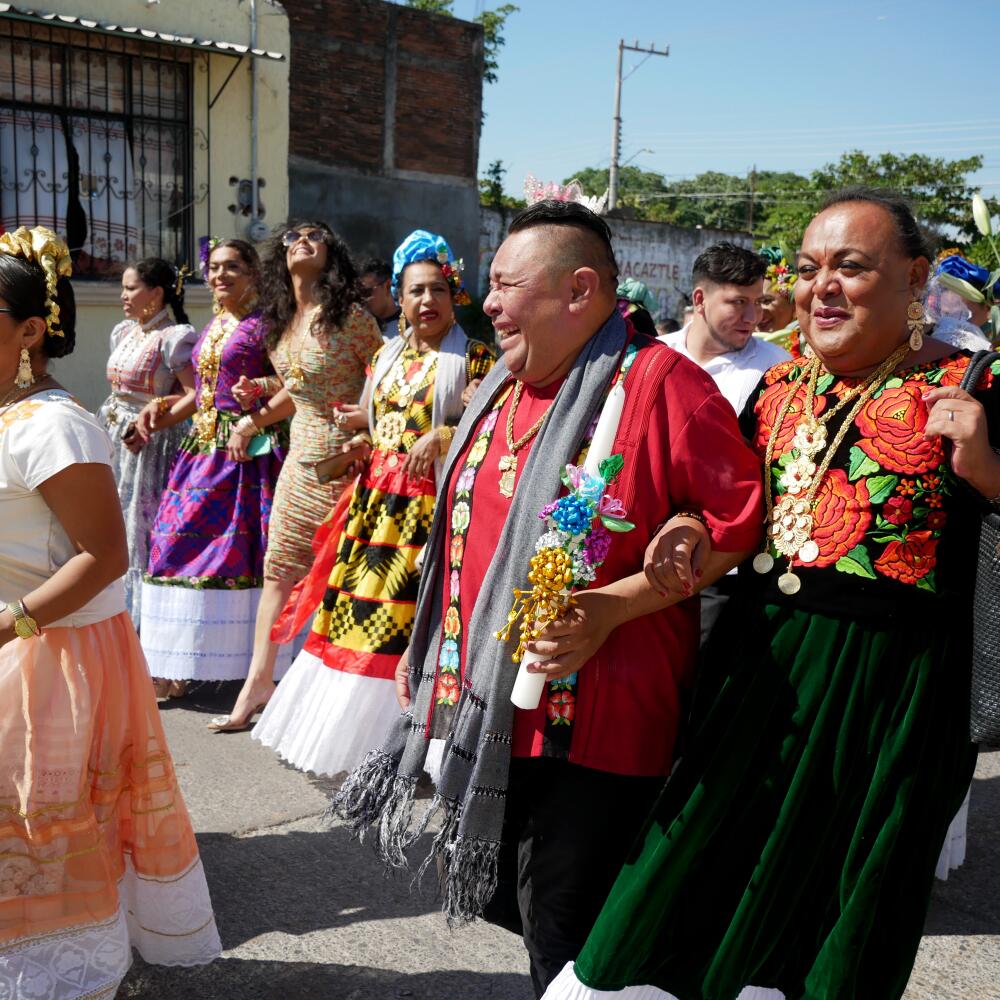
Throughout the weekend of Nov. 17, the 48th annual celebration of Mexico’s third gender — the “muxes” — took place in Juchitan de Zaragoza in Mexico, the country with the second-highest murder rate of trans and gender-diverse people so far this year.
Muxes — pronounced “mu-shay” are born biologically male, but live and embody traditional feminine characteristics and roles in their society.
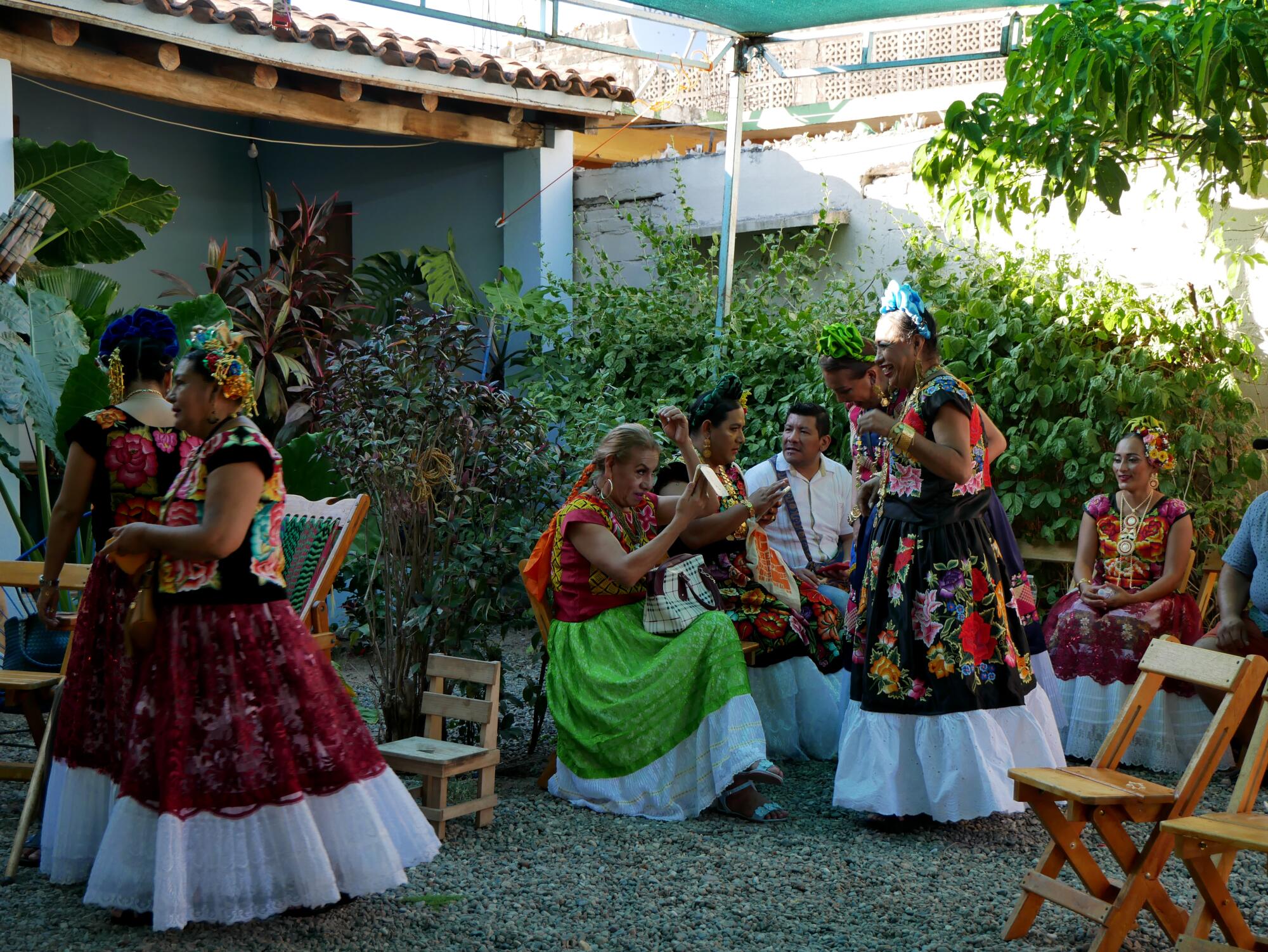
A town legend paints one story of how muxes were created. During his trip around the world, the patron saint of Juchitan, San Vincente Ferrer, carried three bags with him. The first contained male seeds, the second female and the third contained a mix.
But as Ferrer reached Juchitan, the third bag split, and from the thousands of seeds that spilled onto dry earth grew the muxes — Mexico’s third gender, native to the southern Mexican region.
Today, several residents of Juchitan, a city with more than 70,000 people, describe to us “the gift” of having a muxe in the family, which is viewed by many as a blessing.
Their existence, which stands in direct opposition to the West’s gender binary, has been part of the rich indigenous culture in southern Mexico for more than 2,000 years.
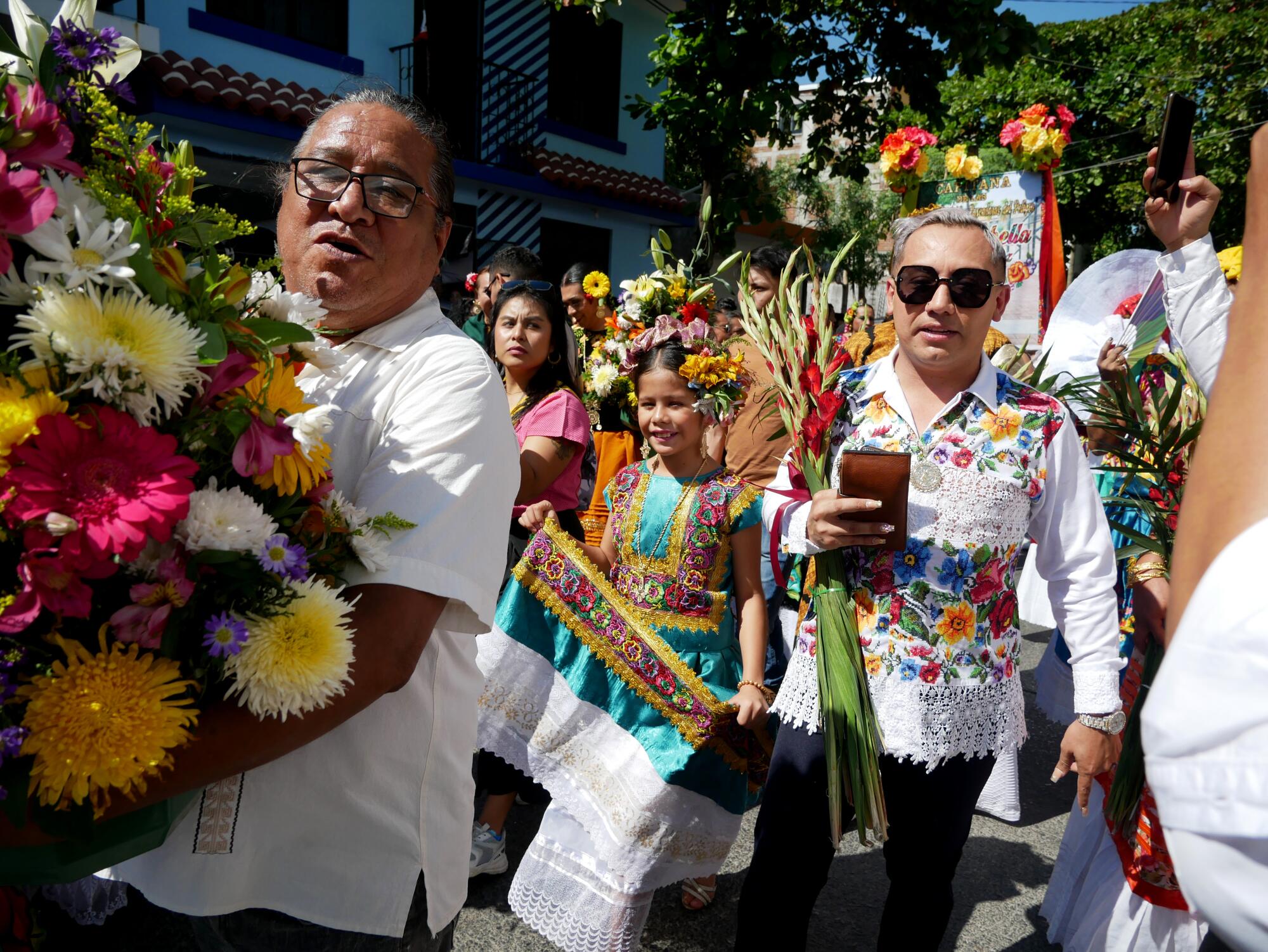
While other analogous communities like the hijras of India and the two-spirit people of North America exist, the striking muxes of Mexico are the only known community of its kind in the world.
But recent murders, abuse and threats are plaguing the community.
In 2019, the founder of the annual celebration, Oscar Cazorla, was found dead in his home in Juchitan. Police reports revealed evidence of torture and multiple stab wounds. Still, despite national protests and a call for a “diligent investigation” by the United Nations Commission for Human Rights in Mexico, no arrests have been made.
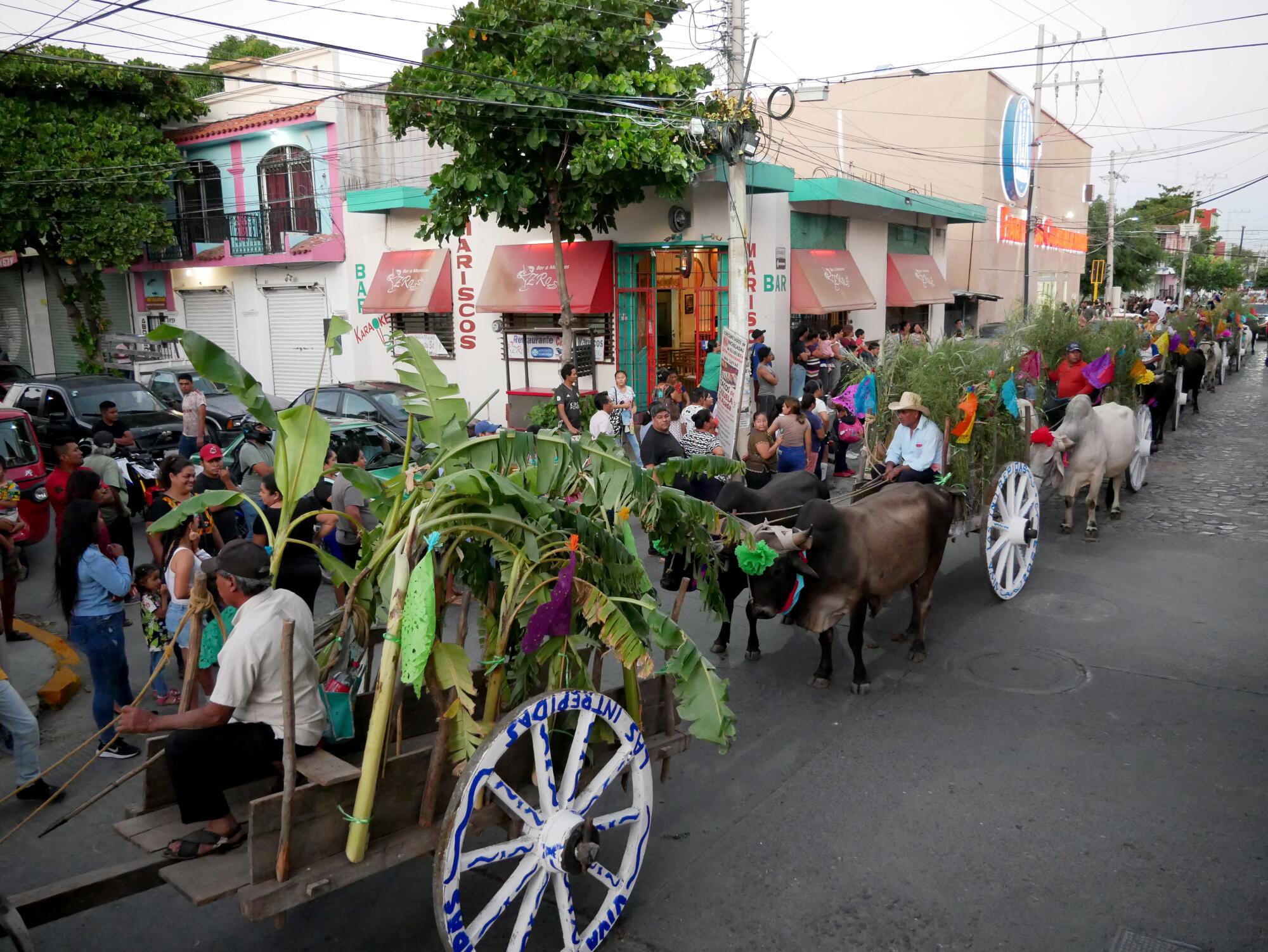
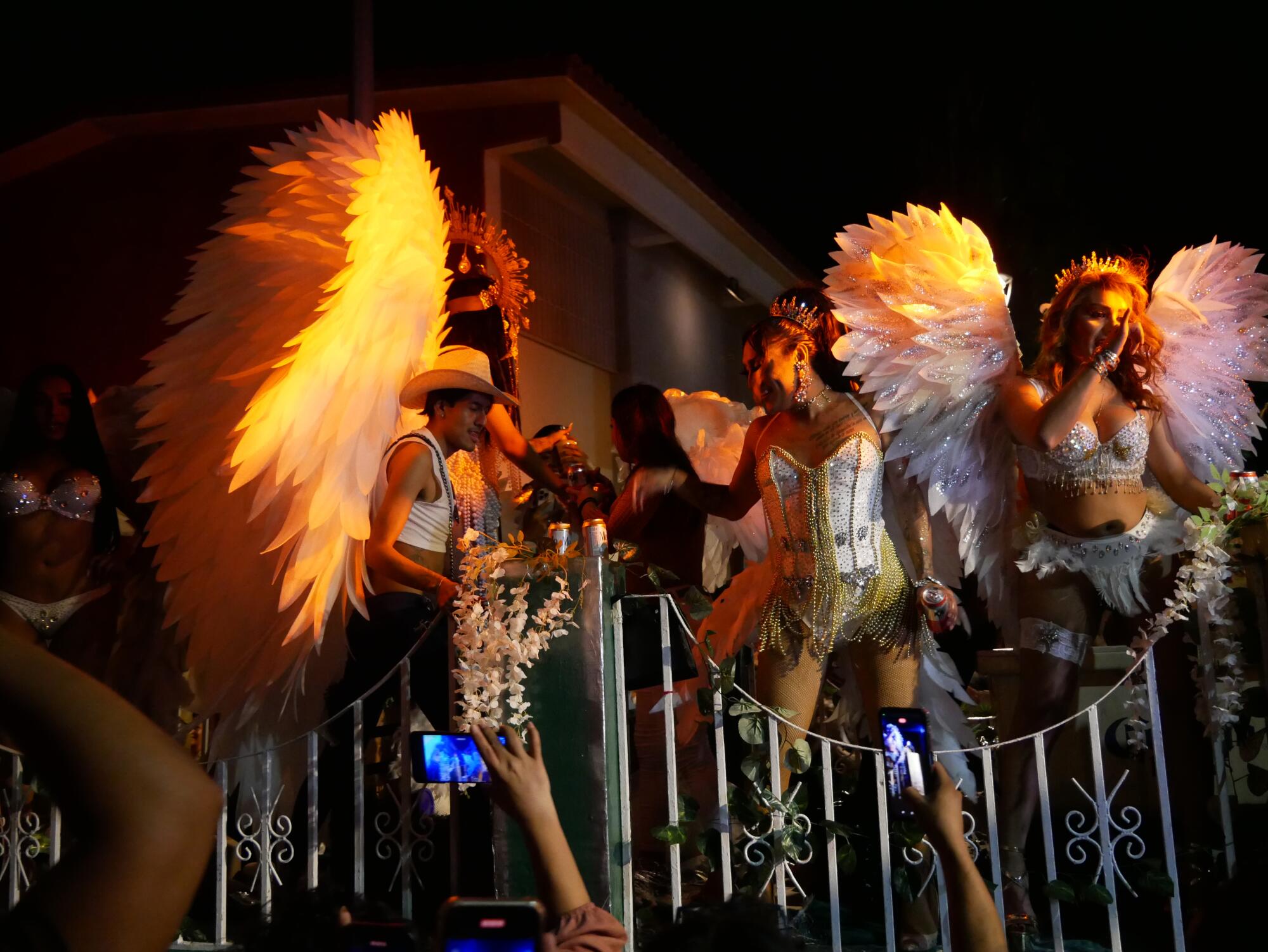
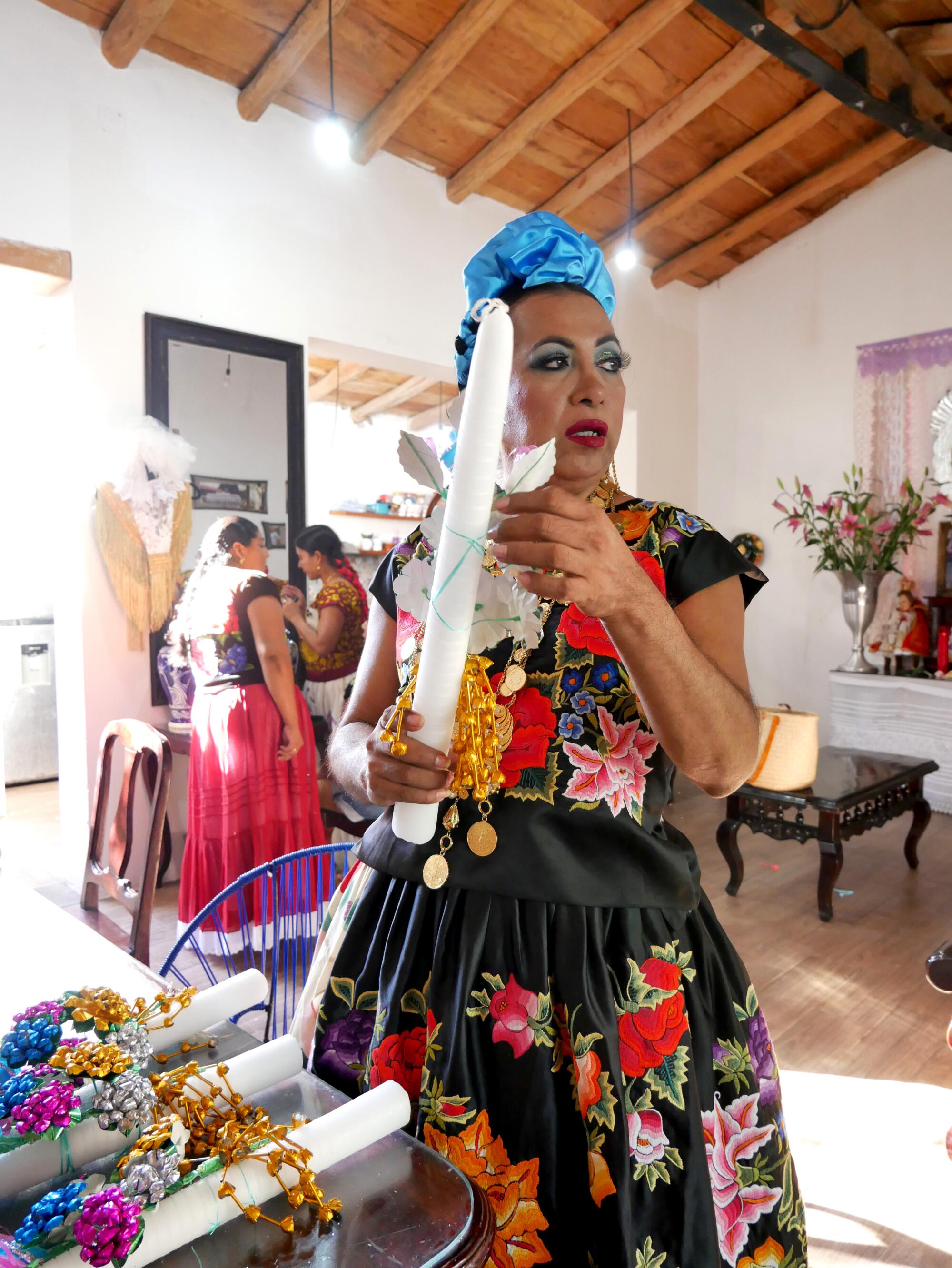
On Nov. 13, one of Mexico’s leading LGBTQ+ activists, Jesus Ociel Baena was found dead in their home alongside their partner in central Mexico. They were the first openly nonbinary magistrate in Latin America.
Thousands took to the streets to protest their death and murder for which nobody has been charged.
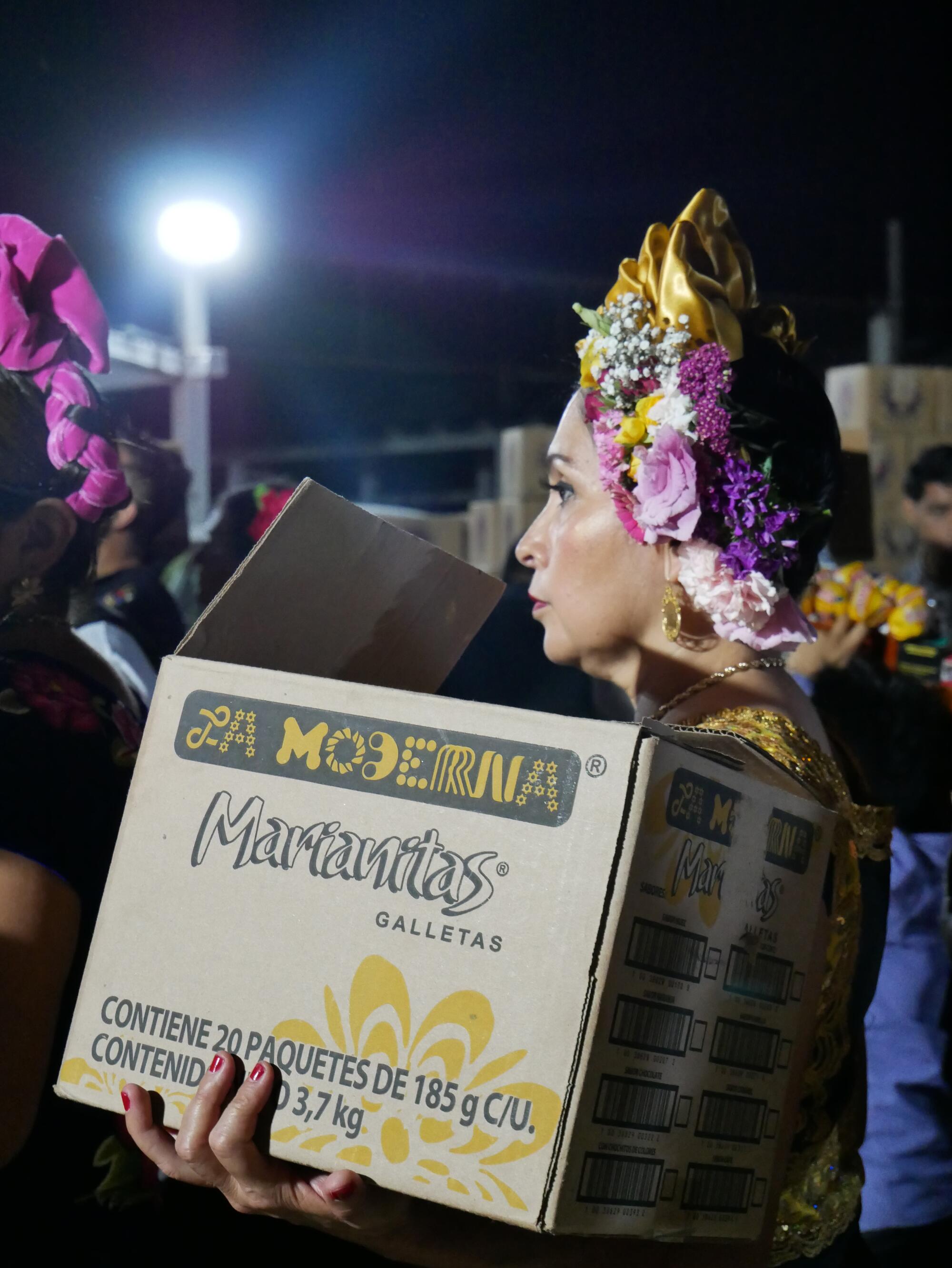

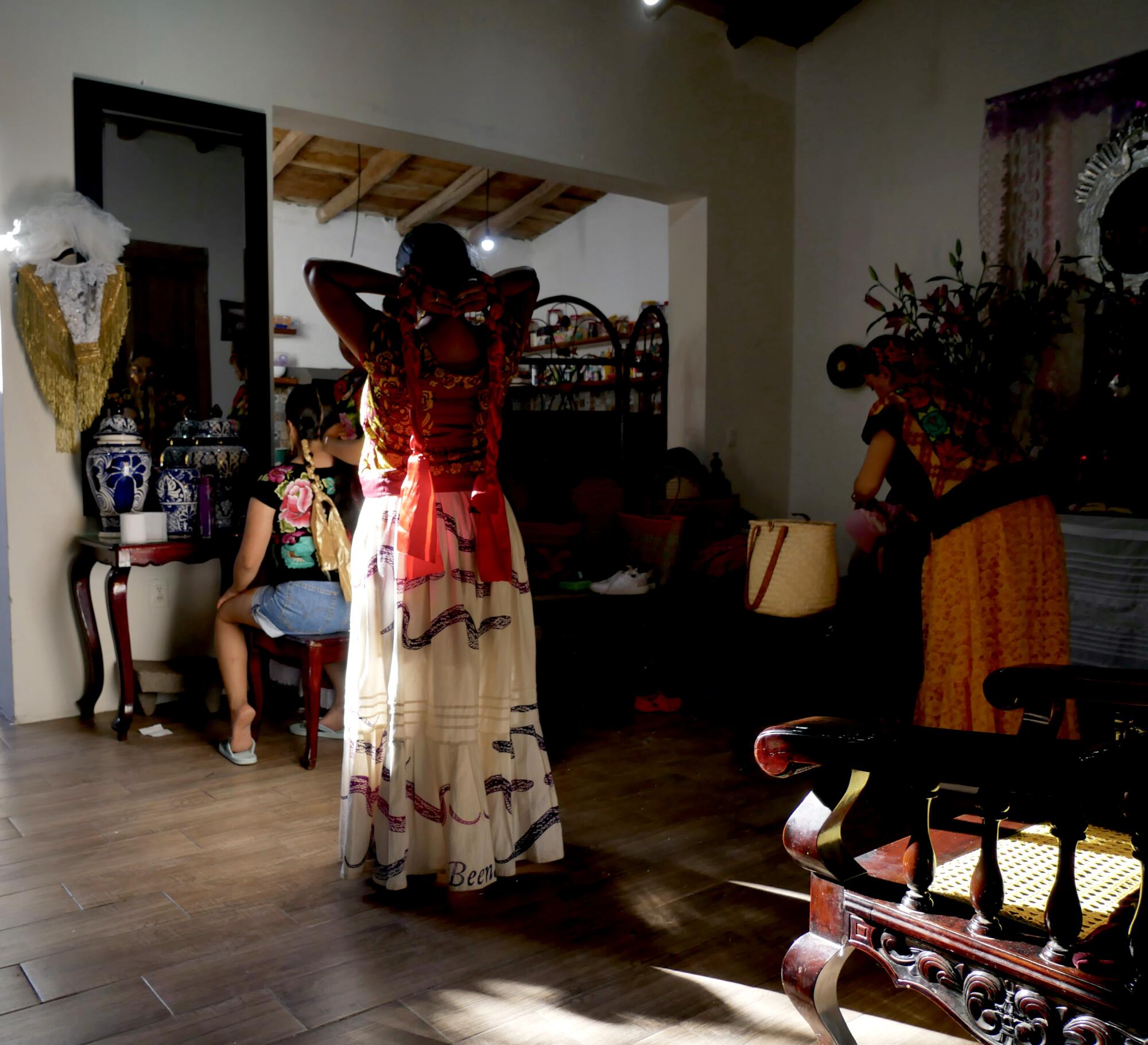
This year, amid national cries for justice, the muxe’s festival, known locally as a “vela” attracted a record-breaking 10,000 people.
Felina Santiago, president of the three-day event, said: “We are strong and will not show our fear. This weekend, we celebrate our identity and showcase the courage of our community.”

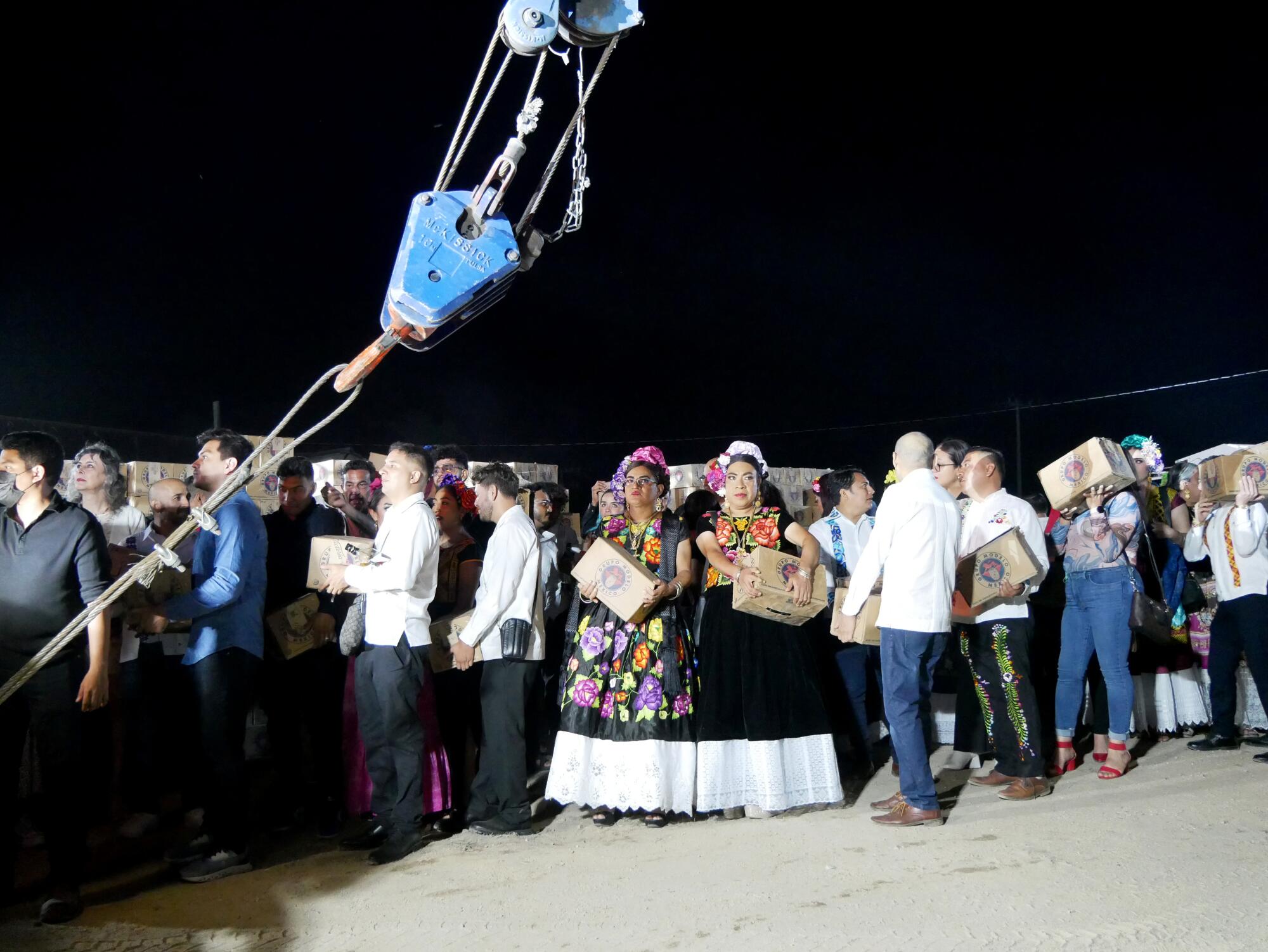
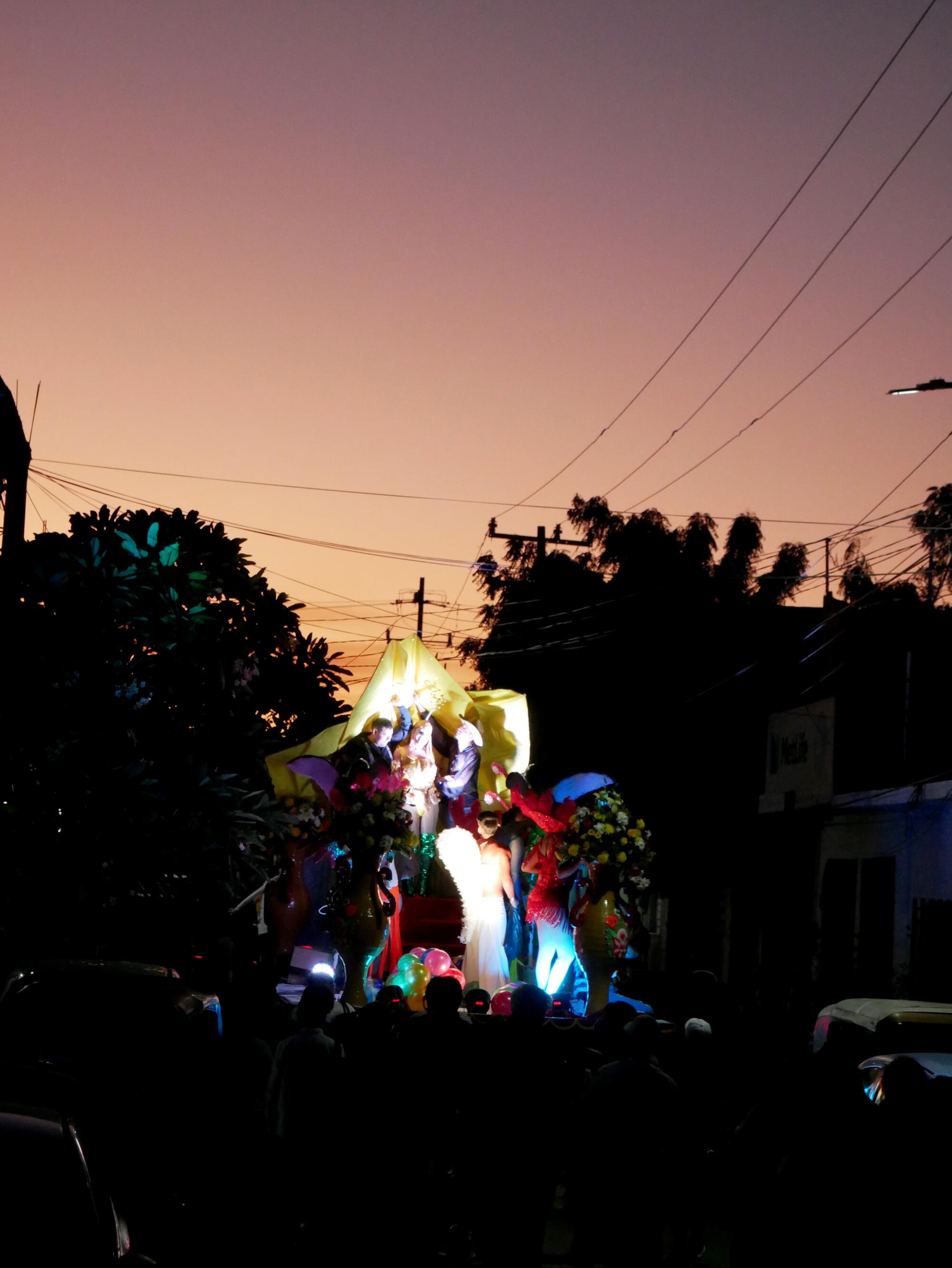
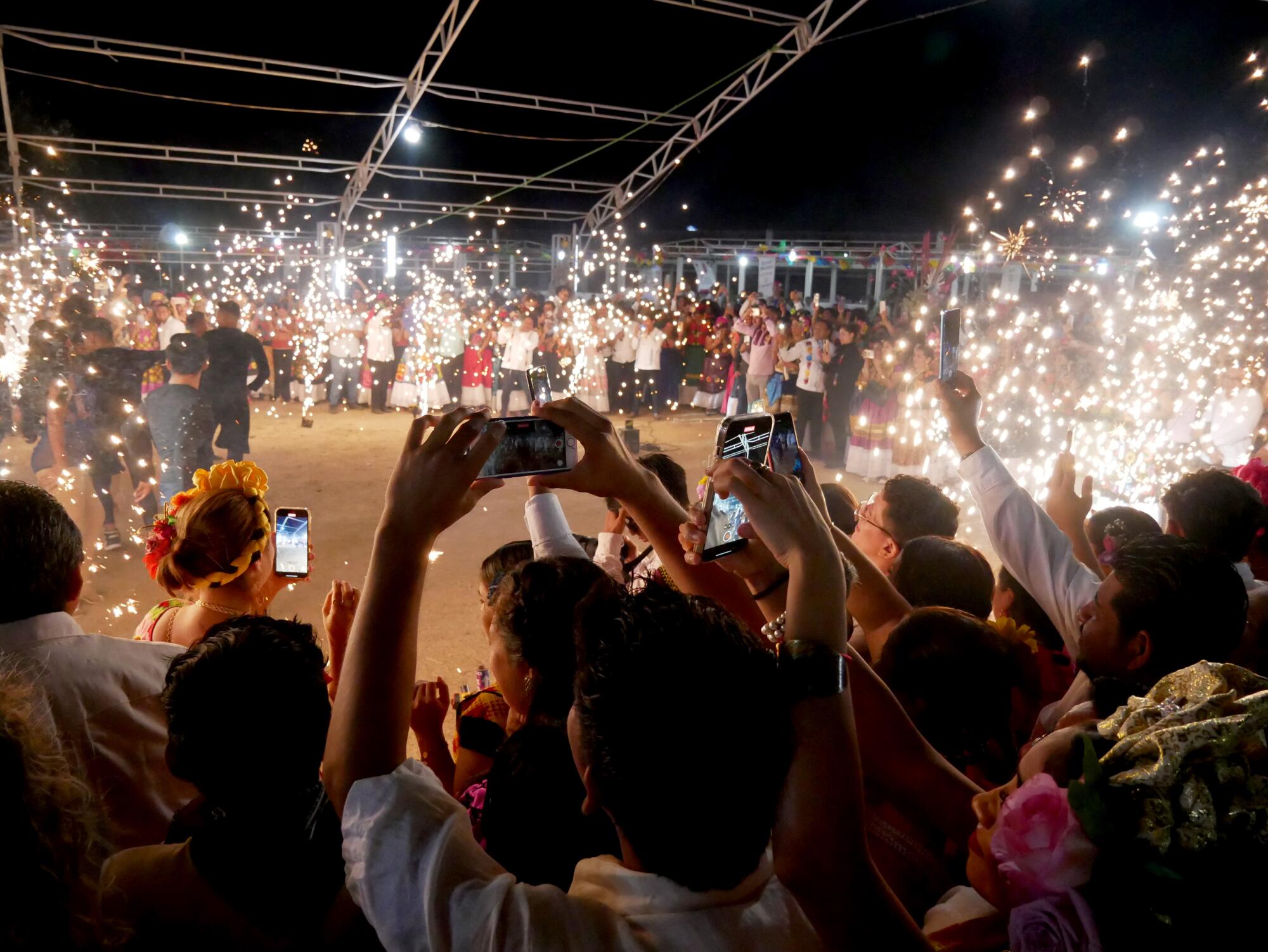
Later in the night, which was characterized by color, laughter, unity and celebration, Elvis Guerra, who was named queen at the beauty pageant, echoed Santiago’s speec by demanding the thousands in the crowd to “continue the fight for equality.”
Gordon Cole-Schmidt is a freelance journalist and writer working on international stories from his base in Mexico. His work has been published in major publications around the world.
Mirja Vogel is an international photographer based in Mexico. She has more than 15 years of experience working across three continents as a photographer and photojournalist.
More to Read
The Latinx experience chronicled
Get the Latinx Files newsletter for stories that capture the multitudes within our communities.
You may occasionally receive promotional content from the Los Angeles Times.






